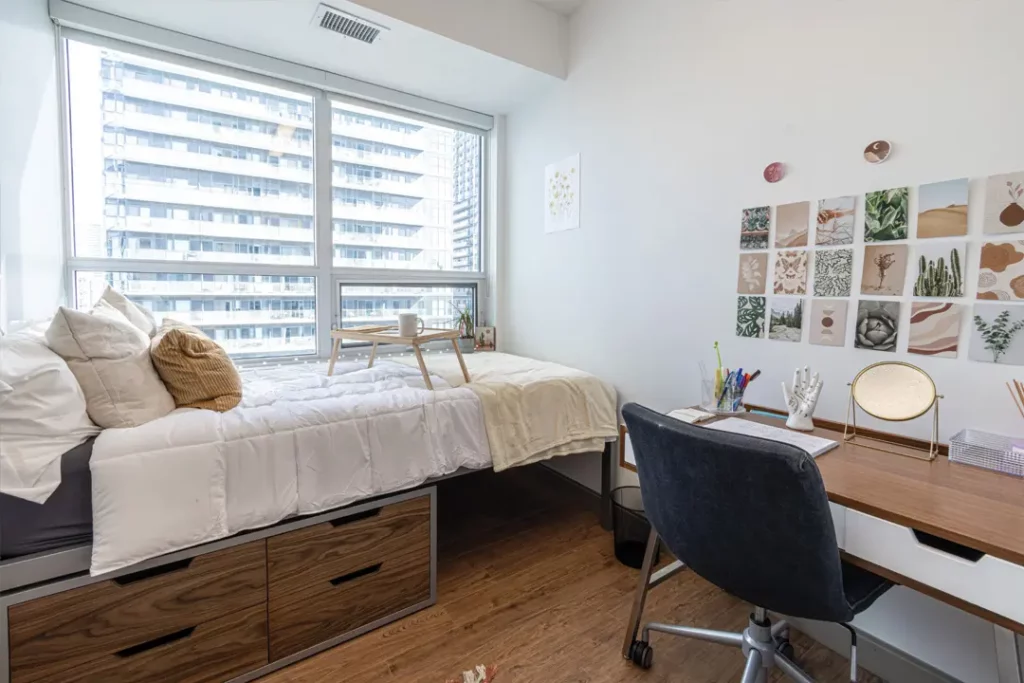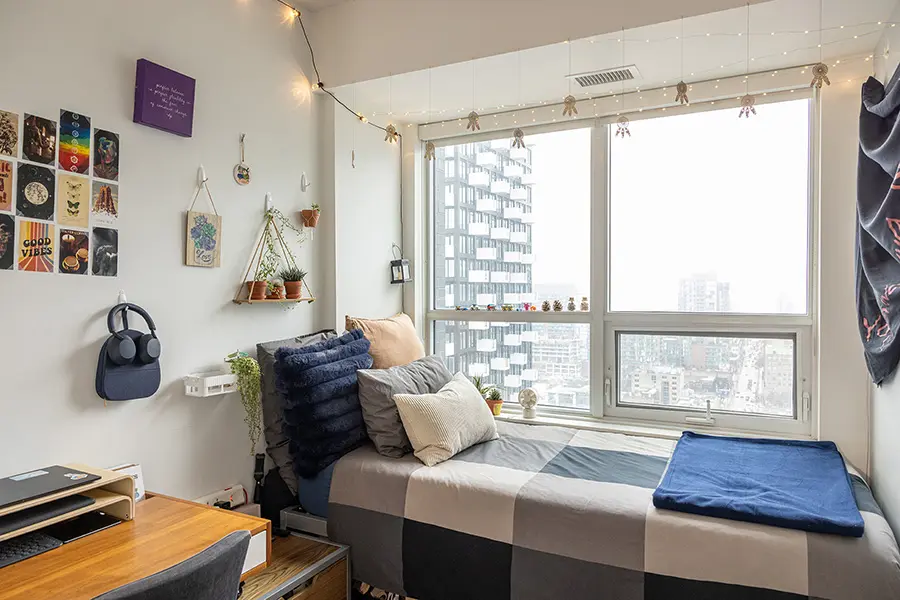
Living with Roommates: How to Set Boundaries and Handle Conflict without Drama
Living with roommates can be one of the best, and sometimes trickiest, parts of college or university life. You might be looking forward to late-night talks, shared snacks, and making lifelong friends.
But let’s be honest, sharing space with other people isn’t always easy. Different routines, habits and expectations can lead to misunderstandings, tension, or full-blown arguments.
The good news is that with a little communication and a few clear boundaries, you can make shared living a lot less stressful and maybe even pretty great.
Overview:
Start Early
Pick Your Battles
Address Problems Quickly
Boundaries
If Things Still Aren’t Working
Keep Talking
Remember the Big Picture
1. Start Early: Talk Before Things Get Awkward
Most roommate conflicts don’t come from major disagreements. They usually come from small things that were never talked about. What may seem normal to you might really bother someone else. That’s why it’s a good idea to have a conversation early on, ideally in the first week of living together.
This doesn’t need to be a ‘formal’ roommate meeting. You can have a casual chat while unpacking or making dinner, which would be more than enough.
Here are a few things to cover early:
- Sleep and Noise: When do you usually go to bed? Are you okay with music or phone calls at night?
- Guests: Is it cool to have friends over during the week? What about overnight?
- Shared Stuff: Are you okay sharing food, shampoo, or cleaning supplies?
- Cleaning: What’s the plan for dishes, garbage and shared spaces?
While it might feel a bit awkward at first, talking about these things early can save you from getting frustrated later.
If you want a more structured approach, many colleges and universities encourage making a roommate agreement together early on. These agreements can help to make expectations clear and prevent misunderstandings later on.
2. Pick Your Battles
When living together in a shared space, there will probably be moments when you are annoyed. Sometimes your roommate will leave a cup in the sink overnight. Sometimes they may play music loudly late one night.
Before saying anything, you might want to ask yourself – is this a big deal? If it’s something small, and happens rarely, you may want to let it slide. But if it keeps happening, and it bothers you, then it’s worth talking about.
3. Address Problems Quickly (and in person)
If something is bothering you, the worst strategy is to let it build up until you explode. Instead, bring it up before it becomes a bigger deal.
And while it may be tempting to avoid confrontation or send an angry text, a face-to-face conversation can help prevent things from escalating. You can avoid a giant blow-up by addressing it calmly and early.
When an issue does come up, you can try this approach:
- Pause to cool off if you’re upset
- Use “I” statements to express how you feel (for example, “I feel stressed when the dishes pile up, because then it’s hard to cook”)
- Try to be direct and calm, rather than passive-aggressive or overly emotional
4. Boundaries = Respect
You and your roommate might have totally different lifestyles. That’s why setting boundaries is so important. A boundary is just a way to let someone know what does or doesn’t work for you. It’s not about being rude or harsh. It’s about protecting your space and your mental health.
Here are a few examples of what you can say:
- I’m fine with you using my dishes, but just please rinse them off after.
- I really need the lights to be out by midnight on weekdays.
- Let’s alternate buying household items like toilet paper.
The goal isn’t to turn your roommate into you, it’s to find ways to respect each other’s differences.
5. If Things Still Aren’t Working
Sometimes, even after trying, situations don’t get better. If you feel uncomfortable or your boundaries keep getting crossed, it might be a good idea to seek out help from someone else.
Some recommended steps are:
- Talk to your RA (in HOEM’s case, your NL) or student support centre first
- Ask if they can be, or provide, a mediator
- If after mediation, things do not get better, you can ask for a room change
These recommendations can help you find a solution, while also giving you peace of mind.
6. Keep Talking, Even When Things Are Fine
Many people only check in when something goes wrong. But regular conversations can help prevent bigger issues from coming up later.
Some ways you can stay connected:
- Do a quick check-in every few weeks
- Use a shared calendar or group chat to keep track of chores or shared expenses
- Celebrate when things are going well
Trying to be open and approachable can make a big difference. What matters is that everyone feels heard.
7. Remember the Big Picture
At the end of the day, college or university is about more than just your living situation. While it’s easy to become caught up in roommate dramas, your main reason for being there is to go to classes, learn, and make friends. Not every roommate will become your life-long friend, and that’s okay.
The goal is to live together, with respect and without constant stress. When in doubt, talk it out before the little stuff becomes big stuff.
About the Author
Shirley Reichberg, BA, BEd, OCT, is an Occupational Therapist and OCT-certified educator with almost two decades of classroom experience. As the Director of Executive Function Coaching at The Red Oak Centre, Shirley is dedicated to helping students build organization, time management, planning, and task prioritization skills —tools that foster both academic achievement and personal growth.





























